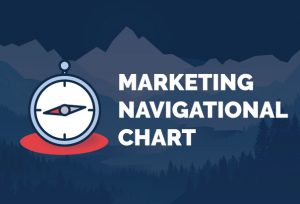This Week’s Industry News
Compiled by the Rocket Clicks Team
Top Stories
New Feature Added to Google Posts
There is a redesign to the Google Posts creation tool within Google My Business. The new user interface gives you three options for publishing Google Posts. The tabs at the top of the page include a “What’s New” section, “Event” and “Offers”. For an Offer Post, these can be used to feature a special offer to attract customers with a limited-time deal. Businesses will be able to create a post with a photo and up to 300 words of details, set dates for when the promotion ends, and adding a coupon code and a link to redeem the offer. These posts do not cost anything but are still in the testing stages. Source: SEO Round Table
Google Adds Ad Version History to Ads
Google recently announced via Google+ that advertisers are now capable of viewing the version history of their ads to compare the performance of an ad before and after changes were made. This can be viewed by clicking the pencil icon next to an ad in the new AdWords interface. Google’s help document on this states that “Version history includes the dates each version was edited, how long that version was in place for, and what changes.” Source: Search Engine Roundtable
Bing Intelligent Search Capabilities Expanding
Bing is launching more intelligent search features where information from multiple sources may display in one featured snippet. Facts from several sites are listed together with a link to each site so that users don’t have to check several sources for an answer. If Bing recognized a word in a snippet that is not common knowledge, it will show a definition when a user hovers over the word. Bing said that in the next few weeks it will start showing multiple answers for how-to questions and they have expanded the object detection tool to cover all common top fashion categories. Source: Bing Blogs
Bing Increasing Ad Coverage on Bottom of SERP
Soon, Bing will be expanding the number of ads at the bottom of their search results page from 3 to 4. In addition to this, Bing also removed the sidebar text ads in the US, though product ads will still continue to be served here. Bing stated that this change will be good for advertisers since ads that appear at the bottom of the page allow for richer ad formats compared to the sidebar ad variations. Source: Search Engine Journal
Google Has Started Migrating Sites for Mobile-First Indexing
Google’s Mobile First Indexing means that they will use the mobile version of a site’s page for indexing and ranking. Sites are being notified via Search Console of the migration. Desktop content that has not been migrated over will still continue to be represented in the index. Google says that sites that are not mobile friendly or that are slow to load may still be ranking if it is determined that the page content is the most relevant. To prepare, Google suggests that your mobile site contain the same content as the desktop site and structured data and metadata should be present on both versions. Source: Google Blog
Analysis
Next Level SEM Tests to Try in Your Account
PPC Hero Sergio Cano covers new tests you can try today to take your PPC to the next level. First is ad customizers, which gives advertisers near-real-time context to their ads through user defined instructions in a data feed that can conform to what device or where users are searching from. Another next level test is to try broad match keywords with a lot of negatives. Cano recommends picking a few of your highest converting keywords, making campaign-level negatives of the exact and phrase match variations of those keywords, and examining what searches trigger your ads. Cano states this effectively allows search engines to do ongoing keyword research for you. The authors final test to try is a DSA + RLSA campaign. This combines the ability to dynamically run ads based on landing page content with the ability to target return users more aggressively. He also notes that this is particularly effective with a content-rich website or blog about your products or services. Source: Sergio Cano, PPC Hero
How to Optimize for Micro-Moments
Local Businesses are encouraged to optimize for hyperlocal keywords, targeting the neighborhood or even the street on which it operates. Your business address needs to be consistent on your website, Facebook page and any business directories. If a business listing exists that you don’t own, claim it and make sure that all data is accurate. Cynthia Johnson from Search Engine Journal also recommends having contact information present on every page of your site and supplement that with a click-to-call button whenever possible. Finally, create pages on your site that reflect “right now” questions that people would be searching for. Source: Search Engine Journal





















